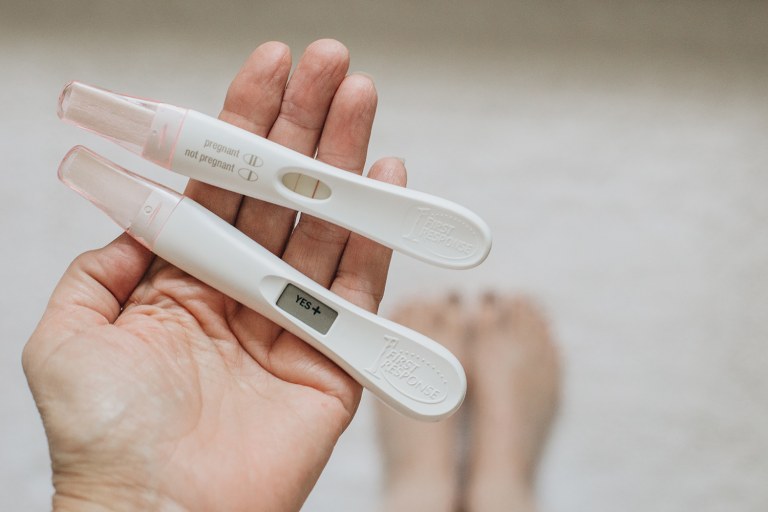Pregnancy due date calculator
Find out when you'll welcome your new arrival(s) into the world! Enter the first day of your last menstrual period or conception date and we'll show you your estimated due date. Plus, explore the exciting milestones ahead for you and your baby, including insights into their zodiac sign, birthstone and more!
Calculation method
Average cycle length (days)
How do I use the Due Date Calculator?
Select your calculation method–either conception date or last menstrual period–and enter a date. We'll crunch the numbers to determine your estimated due date.
How is my due date calculated?
Your due date is calculated based on the first day of your last menstrual period (LMP) or, if known, your conception date. The basic formula is LMP + 280 days = EDD (estimated due date), and pregnancy week counting starts on the first day of your last period, starting with Week 0 (not 1!) and counting all the way up to Week 40 (your due date) and as high as Week 42.
How is the date of conception calculated?
Your conception date is an estimated timeframe based on the first day of your last period. If you're not in the habit of tracking your cycle with apps or calendars, don't worry; some healthcare providers will perform an ultrasound (called the "dating" or "viability" ultrasound—you can request one if your provider doesn't automatically do it) when you're around seven to eight weeks pregnant to get an early measurement of your baby.
What if I already know my due date?
If you already know your due date, it's important to continue regular prenatal care appointments with your healthcare provider. They will monitor your progress throughout your pregnancy and make any adjustments to your due date if needed based on your health and the baby's development.
Can my due date change?
Yes, due dates can change based on various factors such as ultrasound measurements, changes in menstrual cycle length, or new information about the date of conception. In fact, the earlier the ultrasound is done, the more accurate the calculated due date will be. Your healthcare provider will adjust your due date if necessary to ensure the most accurate estimation.
How likely am I to give birth on my due date?
There's certainly some level of accuracy to your EDD, but only about five percent of babies are born on their due date. According to birth data collected by the CDC, in 2021 over 10% of babies in the US were born three or more weeks before their due date, and nearly 56% were born either the week of or the week before their EDD. So rather than basing baby's arrival around a single day, it might be more accurate to consider it your due week, or even your due month.
How soon can I take a pregnancy test?
You can take a pregnancy test as soon as you miss your period or experience other early pregnancy symptoms. Most home pregnancy tests can detect pregnancy hormones in your urine about one to two weeks after conception.
How accurate are pregnancy tests?
In general, home pregnancy tests are more accurate the longer you wait to take them. By testing on the day of your expected period, or after, you're likely to get a more accurate answer. If you test too early (just days after ovulation), you could get a false negative and have to test again later.
My pregnancy test is positive, what should I do next?
If you receive a positive pregnancy test result, the next step is to schedule an appointment with your healthcare provider. They will confirm the pregnancy, discuss prenatal care options and provide guidance on maintaining a healthy pregnancy.
In this article
- How do I use the Due Date Calculator?
- How is my due date calculated?
- How is the date of conception calculated?
- What if I already know my due date?
- Can my due date change?
- How likely am I to give birth on my due date?
- How soon can I take a pregnancy test?
- How accurate are pregnancy tests?
- My pregnancy test is positive, what should I do next?



